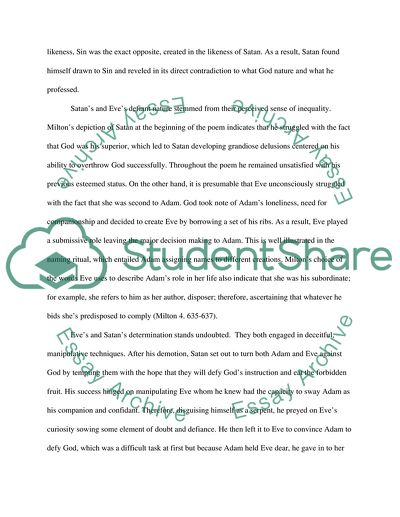Cite this document
(“Satan and Eve contrast in John Milton's Paradise Lost Essay”, n.d.)
Retrieved from https://studentshare.org/literature/1618429-satan-and-eve-contrast-in-john-miltons-paradise-lost
Retrieved from https://studentshare.org/literature/1618429-satan-and-eve-contrast-in-john-miltons-paradise-lost
(Satan and Eve Contrast in John Milton'S Paradise Lost Essay)
https://studentshare.org/literature/1618429-satan-and-eve-contrast-in-john-miltons-paradise-lost.
https://studentshare.org/literature/1618429-satan-and-eve-contrast-in-john-miltons-paradise-lost.
“Satan and Eve Contrast in John Milton'S Paradise Lost Essay”, n.d. https://studentshare.org/literature/1618429-satan-and-eve-contrast-in-john-miltons-paradise-lost.


